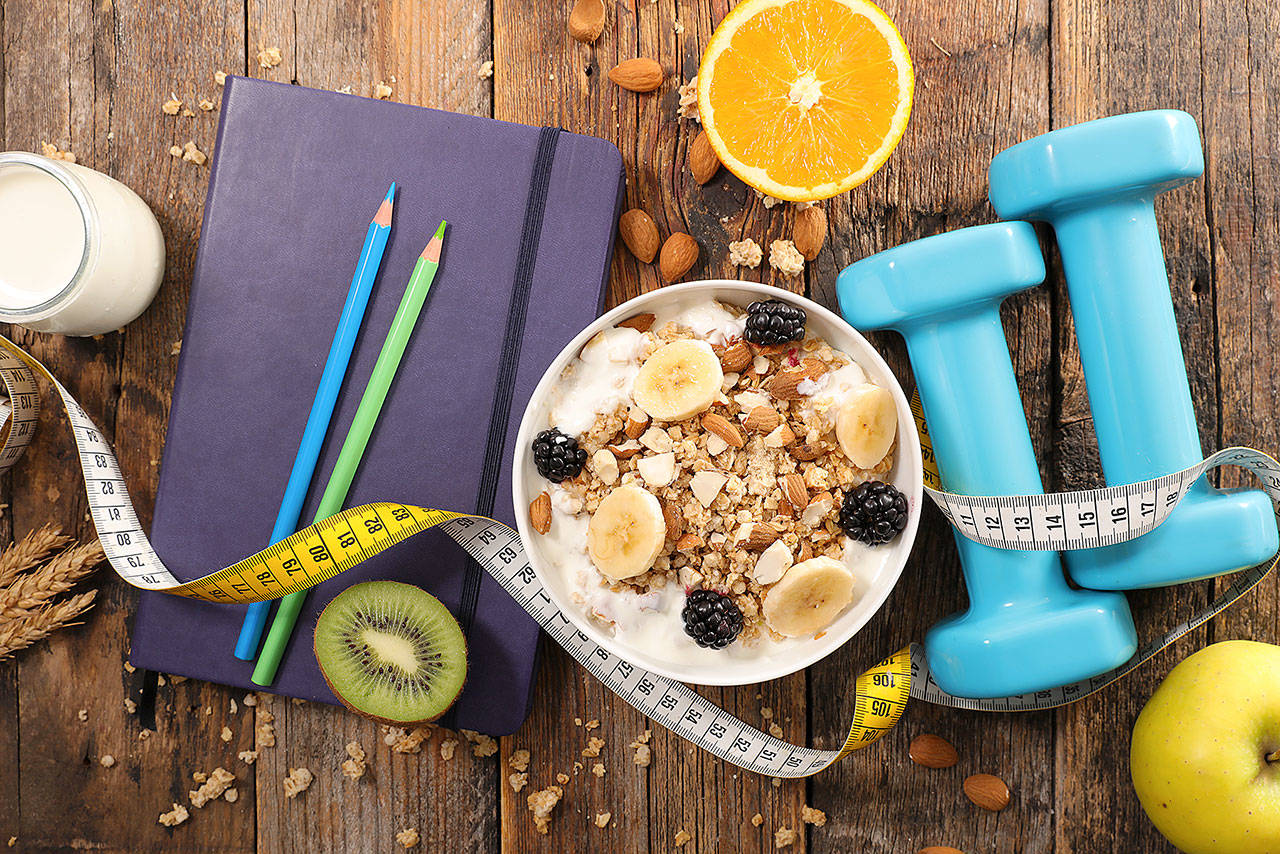Anyone trying to lose weight knows it requires taking in less calories than you burn. A caloric deficit is a must if we wish to burn excess fat on our bodies. We can increase the amount of calories we burn with physical activity, we can decrease the amount of food we eat, or for optimal results, we combine the two.
I regularly coach clients on how to safely and effectively lose weight, and though it sounds counterintuitive, the biggest danger I warn them of is not eating enough. It’s the single most damaging thing you can do to your weight-loss program. Reducing body fat does not happen faster when you severely cut calories.
On the contrary, when severely deprived, your body opts to catabolize muscle instead of fat. Your metabolism then slows down, causing you to burn less calories than normal. Weight loss stalls and becomes darn near impossible. Frustrated and sick to death of being hungry, is it any wonder you end up plunging head first into a party-size chocolate bundt cake?
You cannot starve yourself into a thin body. Weight loss will at best be fleeting, while the accompanying insanity and angst will rage on long after you’ve “failed” the low-cal diet.
Everyone’s caloric requirements are different. Since I am not sitting down with you personally to figure out your nutritional needs, let me instead share with you some telltale signs you are not eating enough:
Food is constantly on your mind. When your body is being deprived of much-needed calories, it shoves food into the forefront of your mind, day and night. When you are eating the right amount for slow, steady weight loss, you think of eating only when you are legitimately hungry.
You dream of food while sleeping. When I was a low-cal diet addict in my teens, I had nightmares where I would binge-eat scads of junk food. I’d wake up in a panic, relieved that I didn’t actually gorge, but unsettled by the fact that food was invading my mind even as I slept. My body was loudly telling me that it needed more sustenance.
You wake up ravenous in the middle of the night. If hunger pulls you out of a dead sleep while dieting, you aren’t eating enough.
You develop bouts of lightheadedness, even dizziness. If these symptoms come on only while you are in the throes of dieting, low blood sugar is likely the culprit. You’re not eating enough, and/or not frequently enough.
You become terrified of eating. I went through this hell myself, decades ago. I vilified almost all forms of food. What if eating it made me fat? What if it was too high in carbs, calories, sugar? What if I ate too much of it? What if I ate it too late at night? What if, what if, what if. I drove not only myself batty, but also loved ones who were forced to witness and endure such lunacy. Which leads me to the final inarguable sign that you are undereating …
You are crabbier than hell. There’s no bigger giveaway to a diet gone astray than having a surly, irritable demeanor for no apparent reason (other than you’re bloody well starving). If normally welcoming family members bolt in the opposite direction when you enter the room, pay attention. If you bite your coworker’s head off because you’re certain he looked at you funny, something’s off. If friends ask what on earth has gotten into you, it’s likely what’s not gotten into you. Time to redesign your eating program to one that leaves you satiated and serene.
If your body is sending strong hunger signals, you need to feed it. Just feed it wisely, with wholesome veggies and fruit, lean protein and high-fiber, complex carbs. Shoot for slow, steady weight loss, no more than 1 pound per week (even less if you are within 15 pounds of your target weight). Steer clear of any diet that limits your intake to triple digits. Exercise regularly and be sure to include strength training a minimum of two to three times per week.
You’ll be sporting a thinner, healthier body — not overnight, but over time. And it’s time well spent, because slow weight loss is lasting weight loss.
Now, for the love of God, eat something.
Catherine Bongiorno is a personal trainer, nutritional therapist and owner of Lift To Lose Fitness & Nutrition. Email her at info@lifttolose.com or visit www.lifttolose.com for more information.
Talk to us
> Give us your news tips.
> Send us a letter to the editor.
> More Herald contact information.

























